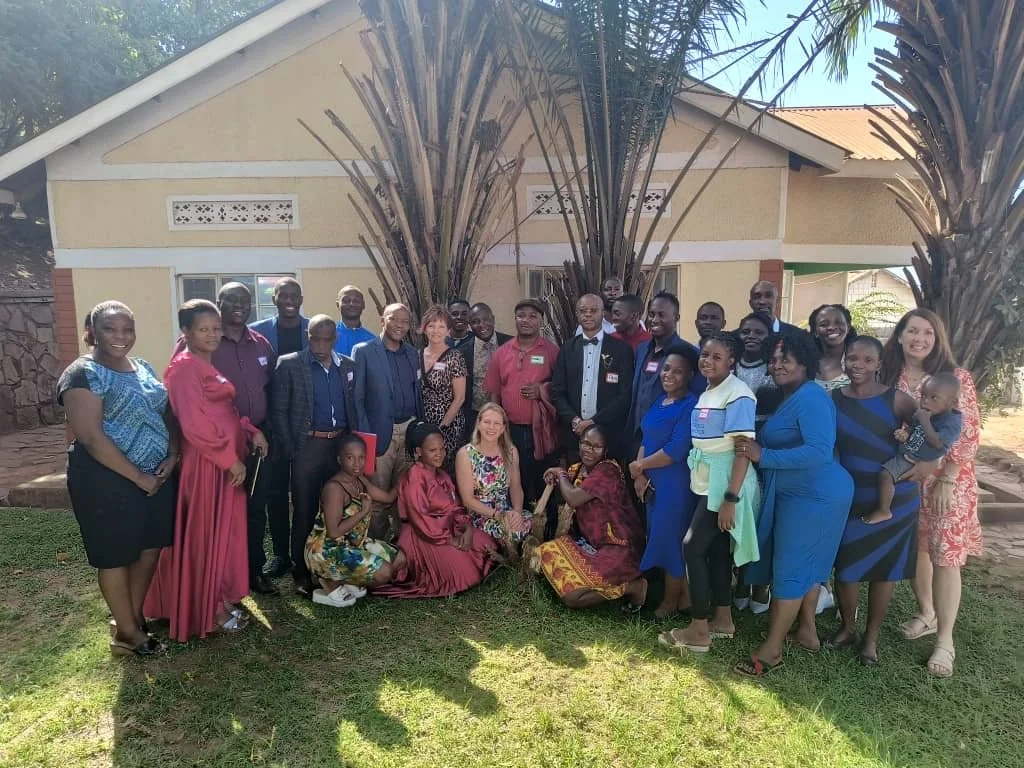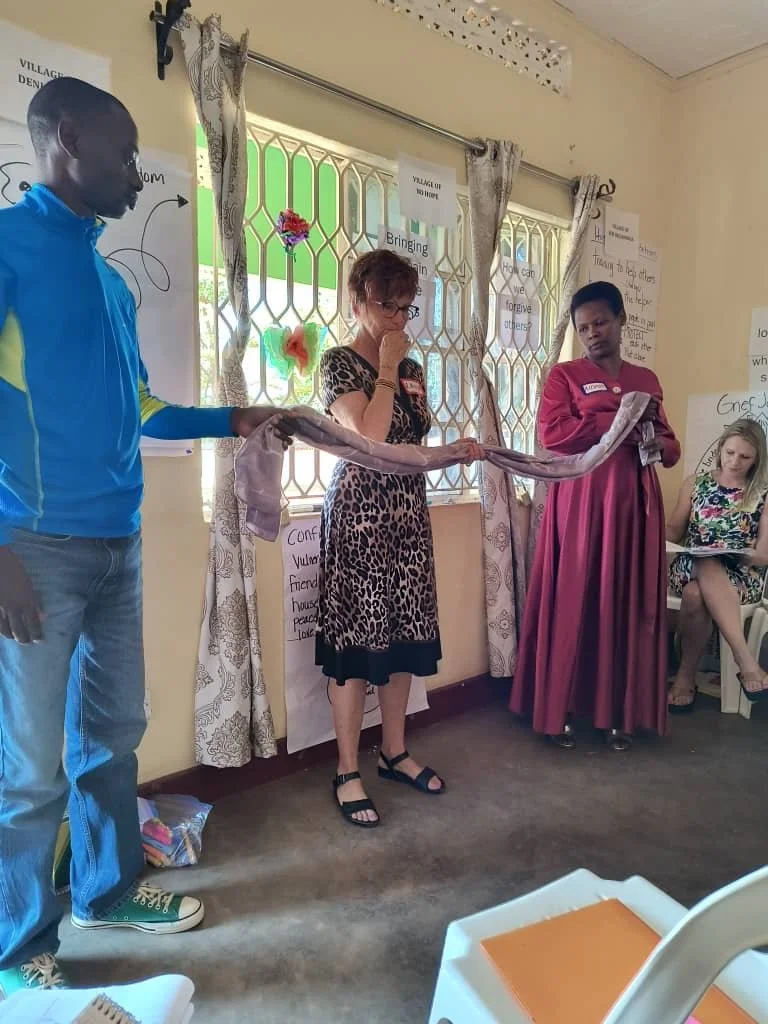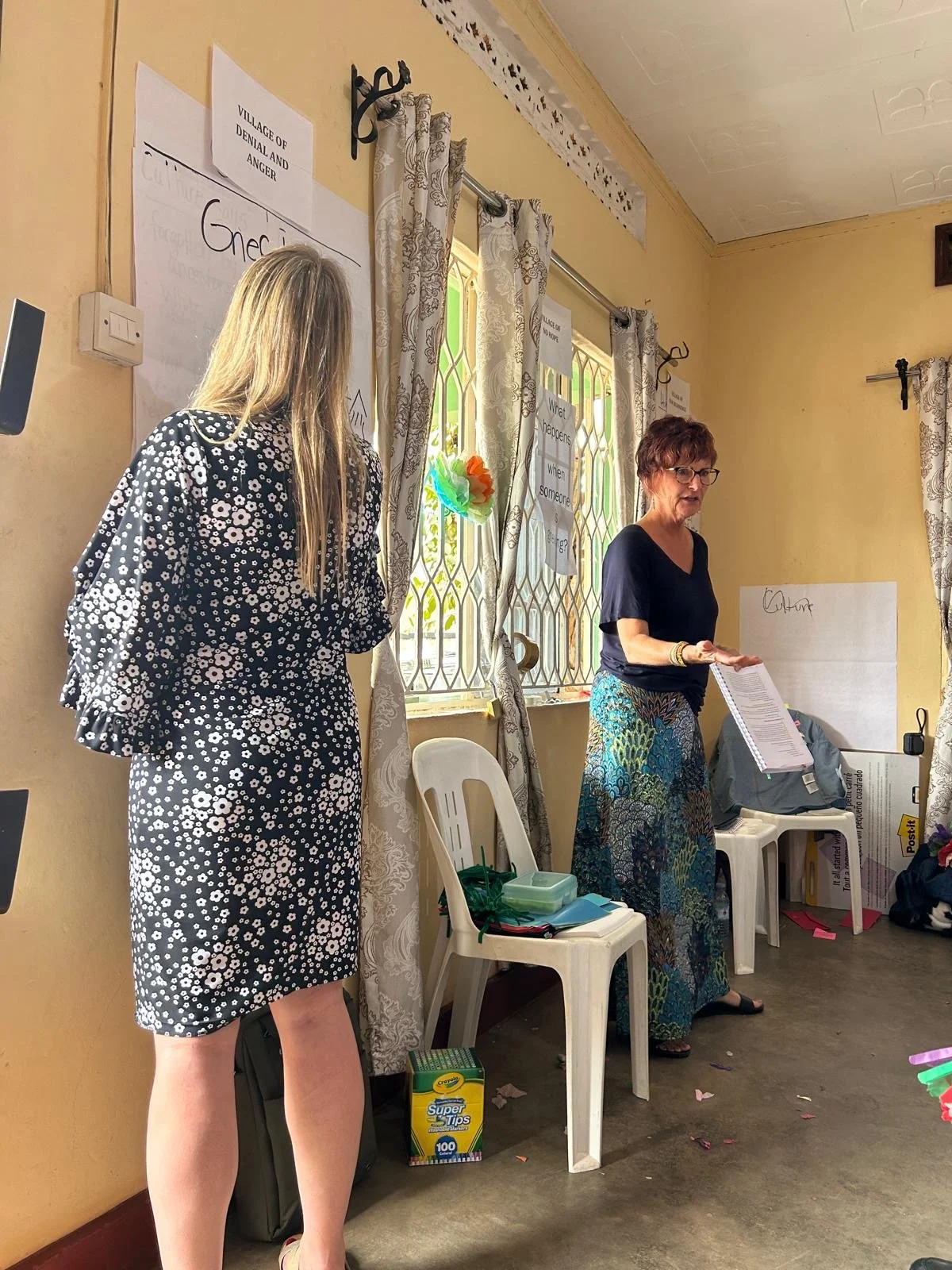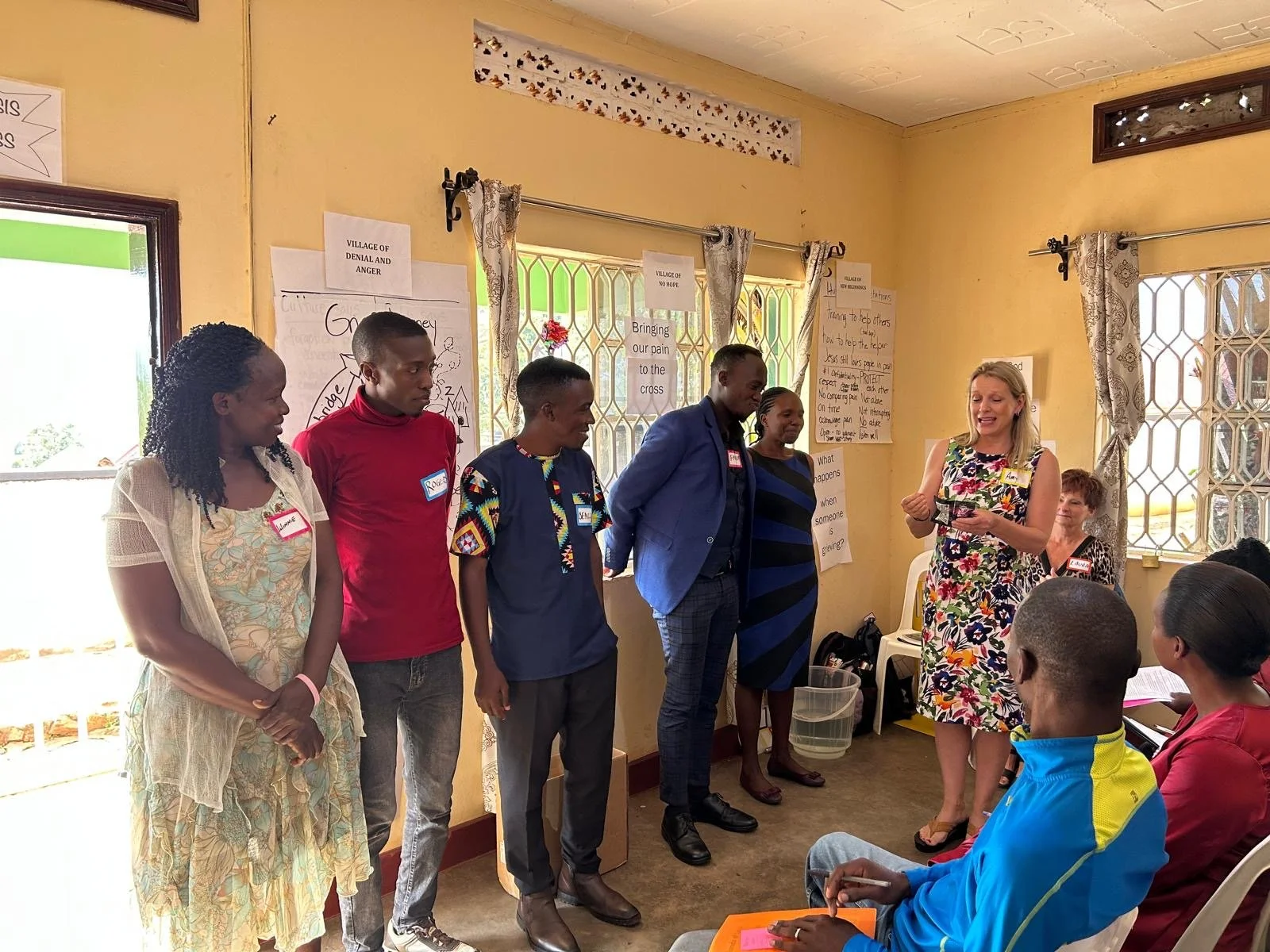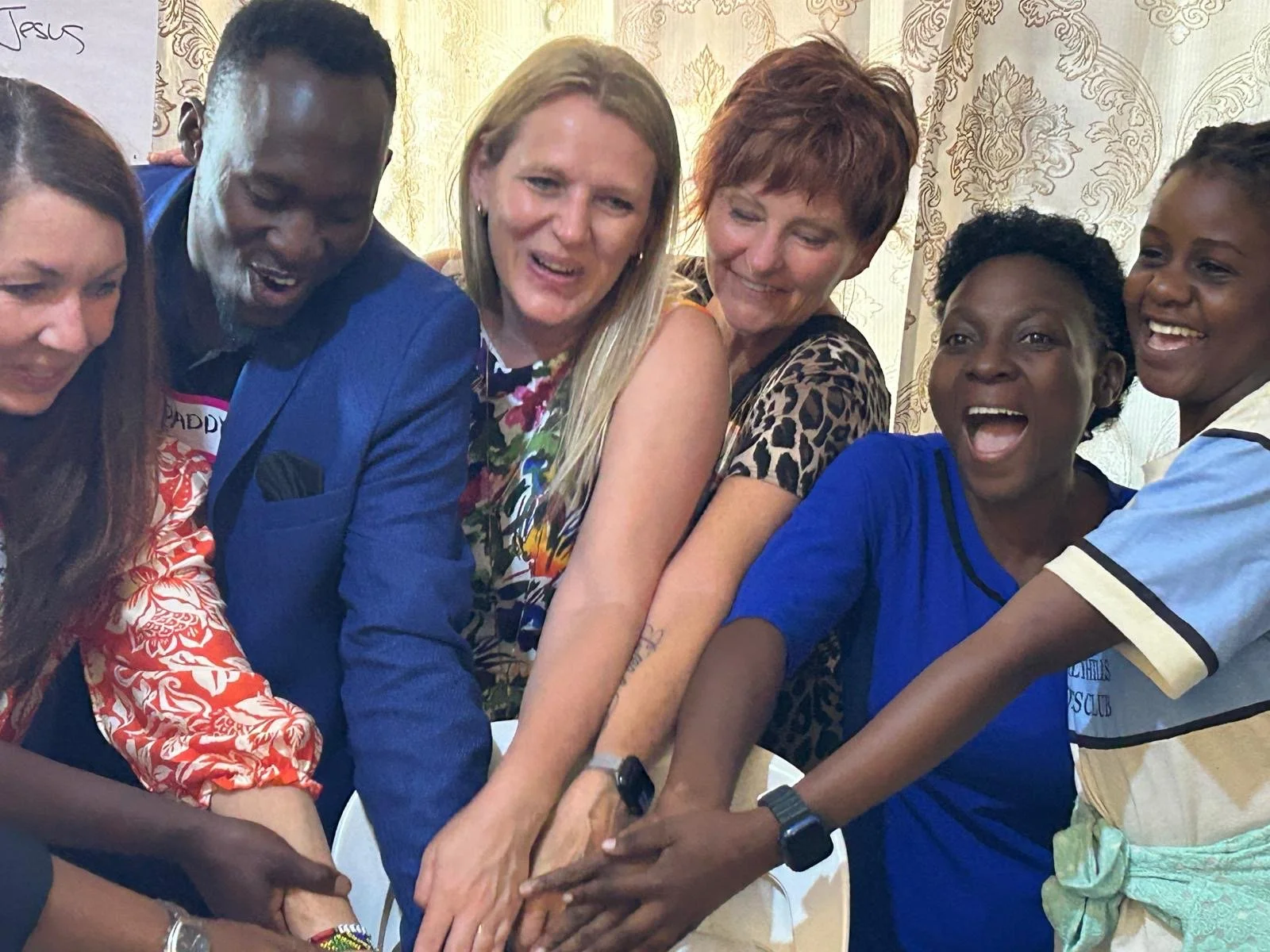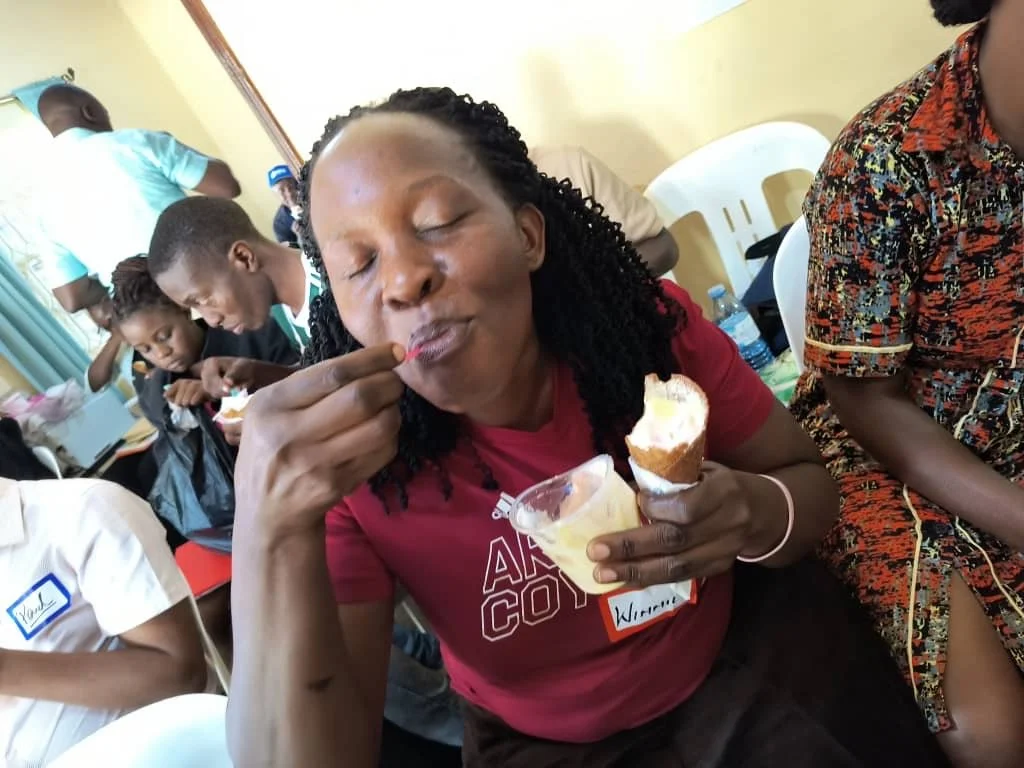Hope & Healing in Uganda: A Journey of Compassion
Laura Longville
In the heart of Uganda, where vibrant communities pulse with resilience yet bear the scars of conflict, loss, and hardship, the need for trauma healing is profound. Inspired by Luke 10:1-9, where Jesus sends out the seventy-two to proclaim peace and heal the sick, training Ugandans (the Hands of Love staff, an NGO that works with physically and mentally disabled children, staff of an organization working with addiction and those incarcerated, several pastors, parents and community church members; totally 27) in trauma healing is a sacred calling. This passage, rich in purpose and compassion, guided us in empowering local leaders to heal their own heart wounds, bringing restoration to their lives and then fostering hope and wholeness to others in the face of profound wounds.
The Context of Trauma in Uganda
Uganda’s history is marked by civil unrest, disease, and displacement, leaving many with emotional and spiritual scars. From the lingering effects of violence to the personal losses from HIV/AIDS and poverty, trauma weaves through communities, often unspoken. Yet, in these same communities lies a wellspring of faith and resilience, ready to be channeled into healing. The call to train Ugandans as trauma healers is a response to this abundant need, equipping local believers to become laborers of peace.
The Biblical Foundation: Luke 10:1-9
In Luke 10:1-9, Jesus commissions seventy-two disciples, sending them in pairs to towns with a clear mission: to prepare the way for His coming, to proclaim the good news of peace, and to heal. This scripture offers a blueprint for trauma healing:
Sent in Pairs (v. 1): Healing is relational. We came to Uganda as co-facilitators and left part of an empowered community of healers. Training a small community of Ugandans fosters mutual support, mirroring the communal strength of their culture. We learned to lean on one another, creating a sustainable model for care.
Dependence on God’s Provision (vv. 3-4): Jesus instructs the disciples to travel lightly, relying on God’s provision through the hospitality of others. While we did NOT travel lightly, we feel hopeful, and so are the hearts of those we served. Many shared the awareness that God sees them, cares for them, and is with them, which increased their faith.
Proclaiming Peace (v. 5): The greeting “Peace be to this house” is a declaration of God’s shalom—wholeness and restoration. Trauma healing begins with creating safe spaces where individuals feel valued and heard, a cornerstone of trauma healing. Feeling safe for the first time, participants shared their pain with God and others, receiving comfort and hope.
Healing the Sick (v. 9): Jesus’ command to “heal the sick” extends beyond physical ailments to emotional and spiritual wounds. Trauma training equips Ugandans to facilitate group discussions, share biblical truths, and guide others toward emotional restoration.
Proclaiming the Kingdom (v. 9): Trauma healing is not merely therapeutic; it’s a testimony to God’s kingdom breaking into broken lives. It was a privilege to witness and experience God’s kingdom coming near to us. Together, we encountered the hope of Christ’s redemptive love.
The Training Model: Empowering Local Healers
To embody Luke 10:1-9, the trauma healing program in Uganda was intentional, culturally sensitive, and Christ-centered. Here’s a framework for training:
1. Community-Based Facilitators
We trained 27 local leaders—Hands of Love staff, pastors, counselors, parents, and community elders—who understand the cultural and spiritual fabric of their people. Like the seventy-two sent in pairs, these facilitators will work collaboratively to bring healing to many more people.
2. Scripture-guided and Best Mental Health Practices Focus
Using resources like "Healing the Wounds of Trauma," a curriculum developed by the American Bible Society, which incorporates best mental health practices with Scripture, guides participants through biblical stories of suffering and redemption. Luke 10:9’s call to heal is mirrored in sessions where participants share their pain, connect it to scripture (e.g., Psalm 34:18, “The Lord is close to the brokenhearted”), and find hope in God’s promises.
3. Cultural Relevance
Uganda’s oral tradition and communal values shape the training. Storytelling, proverbs, and group discussions resonate deeply, allowing participants to process trauma collectively. Training incorporates heart languages and customs, ensuring accessibility and fostering trust, much like the disciples’ reliance on the hospitality of those they served.
4. Sustainability and Multiplication
The seventy-two were sent to prepare others for Jesus’ arrival. Similarly, trainees are equipped to come alongside others, creating a ripple effect that extends beyond their efforts. This model ensures that healing spreads across villages, with each facilitator empowered to lead groups, mentor others, and sustain the work.
5. Holistic Restoration
Trauma healing addresses spiritual, emotional, and social dimensions. Training includes practical tools, such as grounding exercises, to manage anxiety alongside prayer and worship, which help restore spiritual hope. The declaration of God’s kingdom in Luke 10:9 inspires facilitators to point participants toward a future where pain is redeemed.
Impact: Stories of Transformation
Imagine a widower, once silenced by the trauma of losing his family to violence, finding his voice in a healing group. Through a trained facilitator, he shares his story, hears Lamentations 3:19-23, and discovers that God’s mercies are new every morning. Or a young woman in Kampala, burdened by shame from past abuse, who learns through group discussions that she is not alone, finding freedom in Psalm 147:3: “He heals the brokenhearted and binds up their wounds.” These stories, multiplied across Uganda, reflect the power of trained facilitators to bring Christ’s peace to their communities.
Conclusion
Training 27 special people of Uganda in trauma healing is a powerful embodiment of Luke 10:1-9—a mission to bring peace, heal wounds, and proclaim God’s kingdom. By equipping local leaders with the tools to facilitate healing, we participate in Christ’s redemptive work, transforming lives and communities. As the seventy-two went out with Jesus’ authority, so too can Ugandan healers carry His hope, binding up the brokenhearted and declaring, “The kingdom of God has come near to you.”
Our journey to Uganda has transformed Amy and me. Our new Ugandan friends have deeply impacted us. We will forever be connected to these precious souls.
Thank you for your prayers. Thank you for being so supportive in the way you have. Please know that you have created a ripple effect of hope and healing clear across the world!
Head on over to our social media channels for more pictures and updates.



